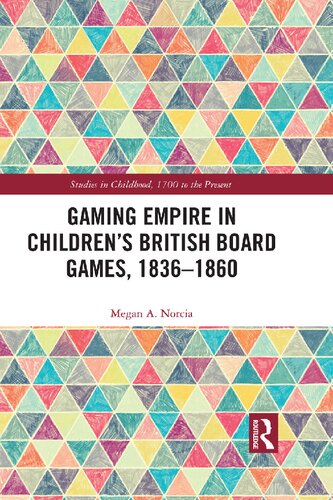

Most ebook files are in PDF format, so you can easily read them using various software such as Foxit Reader or directly on the Google Chrome browser.
Some ebook files are released by publishers in other formats such as .awz, .mobi, .epub, .fb2, etc. You may need to install specific software to read these formats on mobile/PC, such as Calibre.
Please read the tutorial at this link: https://ebookbell.com/faq
We offer FREE conversion to the popular formats you request; however, this may take some time. Therefore, right after payment, please email us, and we will try to provide the service as quickly as possible.
For some exceptional file formats or broken links (if any), please refrain from opening any disputes. Instead, email us first, and we will try to assist within a maximum of 6 hours.
EbookBell Team

5.0
78 reviewsOver a century before Monopoly invited child players to bankrupt one another with merry ruthlessness, a lively and profitable board game industry thrived in Britain from the 1750s onward, thanks to publishers like John Wallis, John Betts, and William Spooner. As part of the new wave of materials catering to the developing mass market of child consumers, the games steadily acquainted future upper- and middle-class empire builders (even the royal family themselves) with the strategies of imperial rule: cultivating, trading, engaging in conflict, displaying, and competing. In their parlors, these players learned the techniques of successful colonial management by playing games such as Spooner’sA Voyage of Discovery,or Betts’A Tour of the British Colonies and Foreign Possessions. These games shaped ideologies about nation, race, and imperial duty, challenging the portrait of Britons as "absent-minded imperialists." Considered on a continuum with children’s geography primers and adventure tales, these games offer a new way to historicize the Victorians, Britain, and Empire itself. The archival research conducted here illustrates the changing disciplinary landscape of children’s literature/culture studies, as well as nineteenth-century imperial studies, by situating the games at the intersection of material and literary culture.